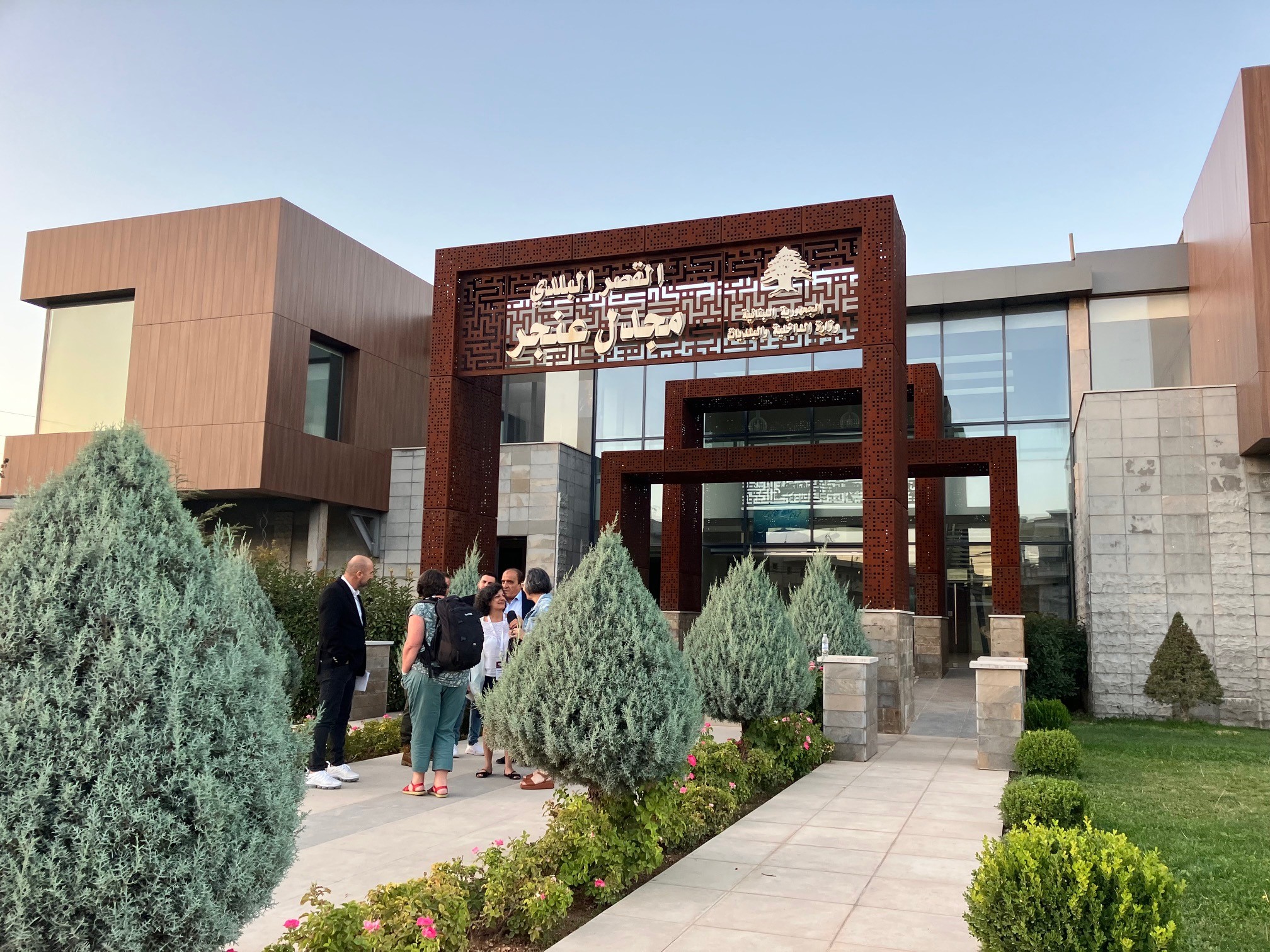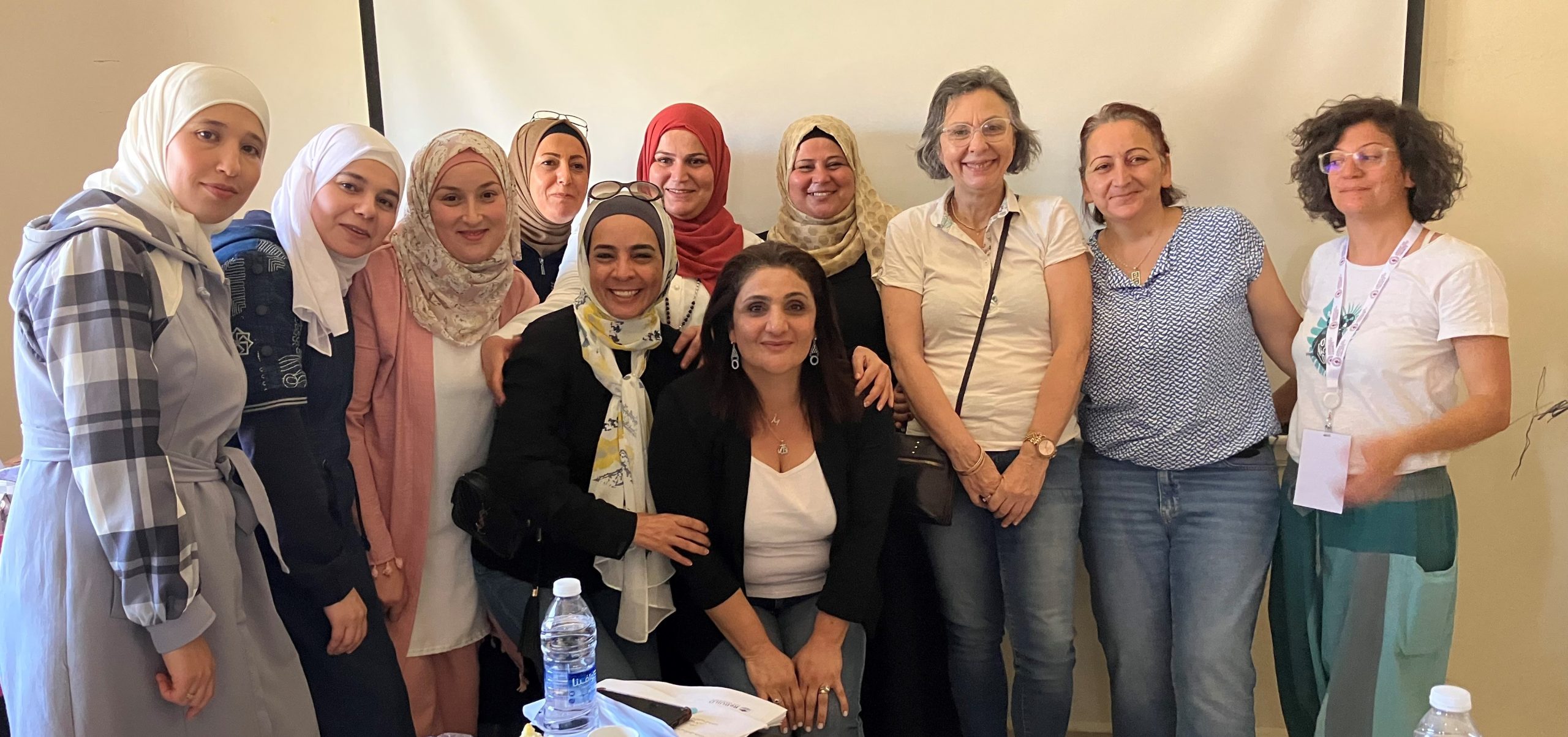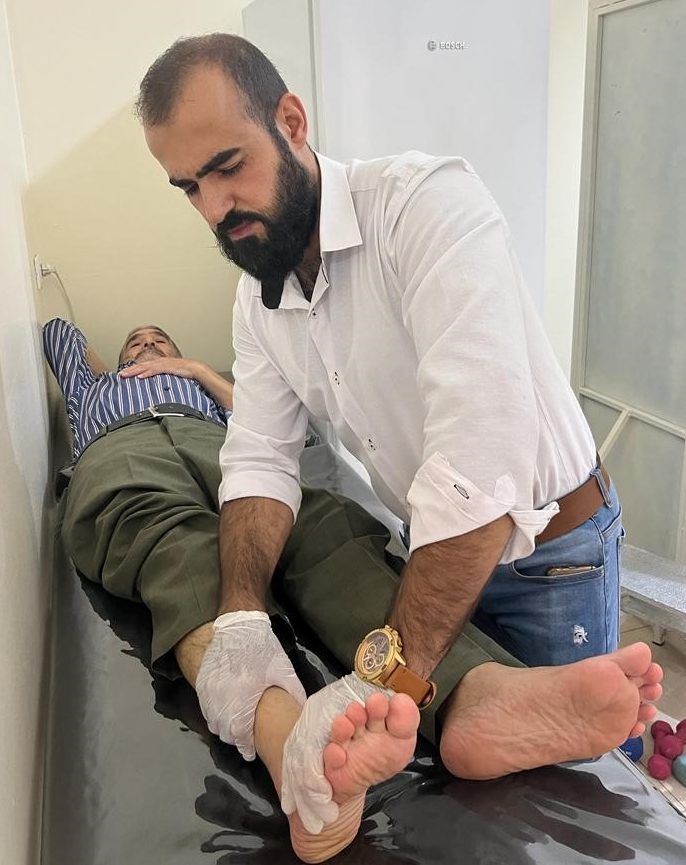
An informal dispensary visit in Majdal Anjar
ReBUILD’s visit to Majdal Anjar
3 October 2023
It’s been a busy few days at the ReBUILD for Resilience consortium workshop here in Lebanon (fantastically arranged by the team from Faculty of Health Sciences – AUB).
Last week we visited our learning site in Majdal Anjar in Beqaa to learn about the valuable work being undertaken by the Municipal Health Committee (MHC) there, with support from our AUB team. Made up of local Lebanese people and Syrian refugees, the MHC is taking steps to improve the governance of the local health system and in turn meet the health needs of local people which are not being met through other means; local solutions to implementation challenges. Initiatives such as a virtual blood bank, medicine collection and redistribution, a school health programme, and a maternal & child health programme are being delivered in challenging circumstances with few resources. Not only do these initiatives provide – or aim to provide – vital services but they are also delivering capacity strengthening and a sense of hope.

The Majdal Anjar municipality building
This is a unique collaboration, bringing together Syrian and Lebanese people as active partners. As Dr Fady El Halabi (VP of the MHC) explained, the drive from the beginning has been towards diversity and representation. And they seem to be succeeding: as one Syrian member of the committee put it, “it’s the first place in Lebanon that wanted to hear our voices.” The challenge for the MHC is to achieve sustainable services that meet the needs of the local population in the long term. They have enthusiasm, energy and ideas but, as Etoile Maalouf (director of a local NGO) said, “Knowledge is not a challenge for us – authority is the challenge.” We’ll be writing more about the MHC soon, including their dissemination event where we met the Lebanese Minister for the Environment and the Mayor of Majdal Anjar.
Working Women
While in Beqaa we also met the ladies taking part in ReBUILD’s close-to-community follow-up study (there’s more on this part of the larger study here). It was a joy to meet the women involved: the problem-identifying process they have been through, the possible solutions they have found for themselves, their optimism for the future, their determination to support each other, and their drive to advocate for women and create a participatory community, Working Women (the name of their group). [Update: read a blog post on this visit here, and read an interview with a group member here.]

The ladies of the Working Women group, staff from the Women Now centre and AUB & LSTM staff
Dispensaries
Also on the trip to Beqaa, we visited local dispensaries – both formal (registered and supported by the government) and informal (no government involvement). There we met the Lebanese and Syrian people meeting the health needs of local people of every nationality and ability to pay. (In this context a dispensary is a place where several health services are provided which might include vaccinations, minor surgery, dentistry, and various specialisms.) The range and quality of services on offer was remarkable, as was the commitment shown by the people we met given the challenging circumstances. [Update: read a blog post comparing and contrasting two of these clinics here.]

A patient being treated in a dispensary in Majdal Anjar
Symposium and workshopping
This week is a little different and we’re back in Beirut where we are holding a mini symposium followed by some serious reflection and planning for the coming year. We’ll write more on that in the coming days. [Update: read an overview of the symposium and the themes that emerged here.]